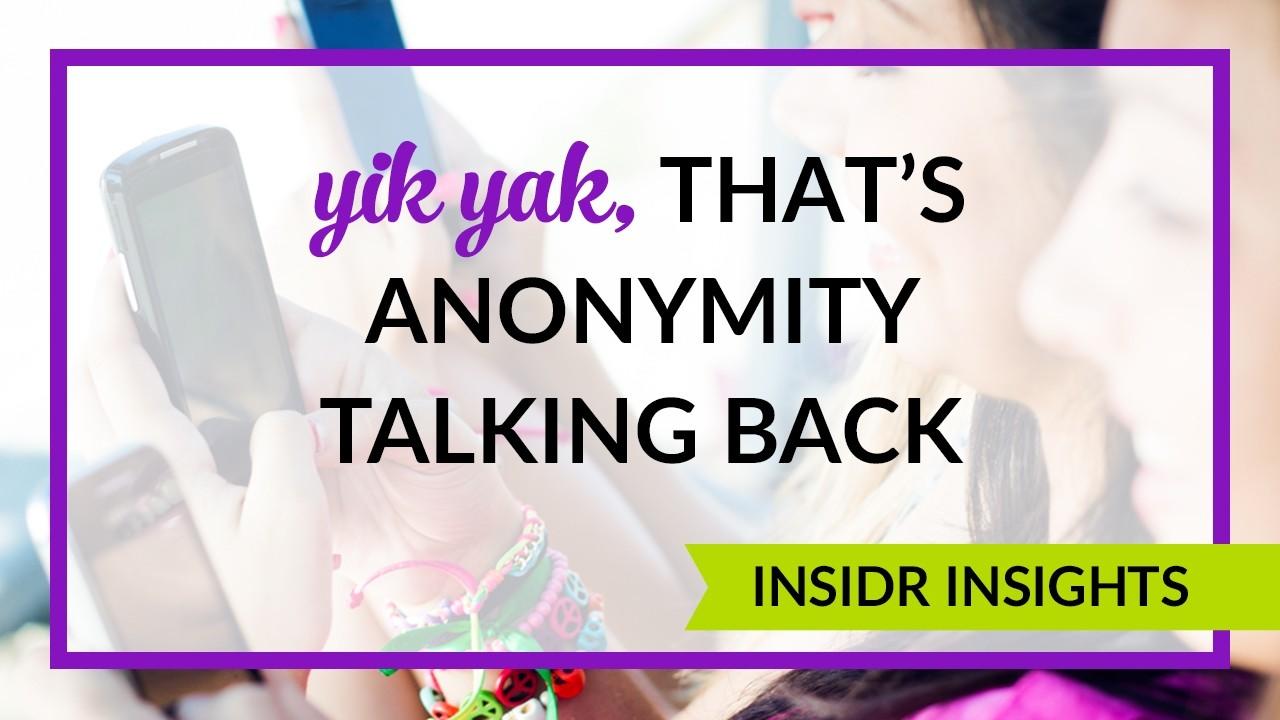
Yik Yak, Anonymity Talking Back
Jan 04, 2018Student post from Hannah Amreen, Law student University of Paris 8
A free social app based on anonymity can prove to be a recipe for disaster, especially in the hands of high school kids who are looking for a means to vent out bitter feelings about their classmates. Initially, Yik Yak, launched in December 2013, was meant for college students, as a ‘virtual bulletin board’ as its creators describe it, which enables its users to share ideas and information with the closest 500 users. Users are limited to 200 characters, no pictures allowed. But there is room enough for nefarious use of the app to be made and defamatory material to be posted, especially since the app has spread to middle and high schools where users are not mature enough to use the app correctly.
A debate on anonymity has been raised. At best, it is a platform where people can easily voice out their opinion, help each other and where close-knit communities can be formed. At worse, it is according to a recent CNN article, a ‘virtual bathroom wall where users post vitriol and hate’ – needless to say, it amounts to one more potential cyberbullying playground, where hateful or sexually explicit comments can also be voiced. And finally to close the debate, anonymity is said to dehumanize users and significantly decrease or eliminate feelings of guilt.
Some incidents such as one girl being bullied for getting raped, and other mean-spirited comments such as ‘How long before A.B kills herself?’ or ‘The fact that O.P has diabetes makes me happy’ and even an anonymous bomb threat have made the app notorious. We should not be surprised then, that the app has been banned in Chicago and a number of schools in the USA by the use of ‘geo-fencing’ or virtual geographic perimeters.
According to family internet safety advocate Sue Scheff: simply deleting the app is not resolving the bigger problem. That is like taking a cigarette away from a child and saying, "Don't smoke." Indeed, what is the use of prohibiting the use of a particular add when kids will continue using it in secret or resort to replacing it with one of the countless apps that will undoubtedly follow? This is why parents and teachers have a significant role to play: what needs to be addressed is the underlying problem. According to Scheff, they have to be ‘equipped with the right emotional and educational tools’ to know how to behave online.
How can parents educate their kids with respect to such social apps?
Connectsafely.org recommends the development of positive, protective social norms: moving thousands of years of social norms into this new social space. « How Yik Yak is different from other social media » by Anne Collier, March 25, 2014.
‘Social combat’ or the need to gain power within the peer group has been identified as one of the main causes of bullying. Parents therefore need to make their children aware, from a very young age, that popularity can be gained by other avenues, such as being self-confident and self-accomplished, as well as being kind to others. Those using the app should also be made to realise that what they consider to be ‘petty’ or ‘well-deserved’ comments may have the power to have long-lasting effects and even potentially scarring their target for life.
Don't miss out!
Get all the latest digital parenting news delivered to your inbox.
We hate SPAM. We will never sell your information, for any reason.

